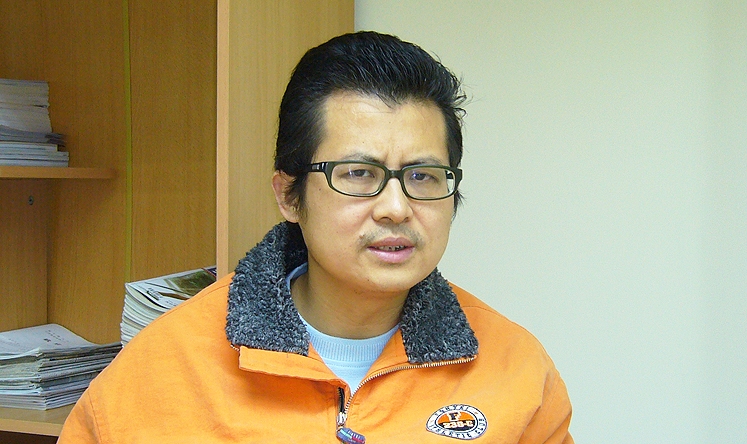The New York Times’ Chris Buckley reports that writer and activist Yang Maodong has finally been allowed access to a lawyer, three months after his detention and two after his formal arrest.
Yang Maodong, a writer and businessman better known by his pen name, Guo Feixiong, was detained by the police in Guangzhou, in Guangdong Province, in early August on allegations of “assembling a crowd to disrupt order in a public place.” He is one of several well-known rights advocates held on similar accusations after participating in grass-roots campaigns pressing the Communist Party for stronger legal and political rights.
Until now, Mr. Yang has not been allowed to see a lawyer, which his lawyers and supporters have said is a blatant violation of Chinese law. Mr. Yang’s lack of access to visitors prompted speculation from some of his supporters that he was ill, had been physically abused or was on a hunger strike.
Mr. Yang told a lawyer who was allowed to visit him, Chen Guangwu, that days after he was detained, he began to refuse to eat food, accepting for 25 days only glucose drinks and a nutritional intravenous drip. Mr. Chen declined to talk about the meeting. The account of it was given by Mr. Yang’s other lawyer, Sui Muqing, who said the police had excluded him from the meeting. [Source]
Human Rights Watch’s Maya Wang explained last month how a loophole in the revised Criminal Procedural Law has been used to deny Yang access to lawyers.
According to the newly revised Criminal Procedural Law, which came into effect on January 1, Guo’s lawyers should have free access to their client. Lawyers’ access was hailed by China’s official media as one of the major “bright spots” in protecting the rights of criminal suspects. According to article 37 of the Criminal Procedure Law, lawyers must be able to access their clients without prior appointment or official permission, and such access should be arranged within 48 hours. But there is also a dangerous loophole: if a case is deemed to involve endangering national security, terrorism, or major bribery, access to lawyers can be denied. Police can do so arbitrarily, and there are few ways to challenge such a decision.
This is the legal black hole into which Guo’s case is falling. Although he is charged with a crime that has nothing to do with national security, the police told his lawyers that Guo’s case was “related” to another one in which suspects were charged with such crimes—thus depriving him access to his lawyers. However, the police have not made a credible explanation of how Guo’s case is one involving national security. Guo’s lawyer filed an administrative lawsuit against the police for violating the Criminal Procedure Law, but the court refused to accept the case. In short, Guo’s case illustrates the extraordinary, unchecked power of China’s security apparatus and deeply politicized judicial system. [Source]
See, via CDT, reports of Yang’s detention and involvement in January’s Southern Weekly protests, which lawyer Sui Muqing reports has been the main focus of his questioning. A leaked Central Propaganda Department directive last month warned the Chinese news media that “regarding the Guo Feixiong case, we have not yet unified plans. Absolutely do not investigate, report, or comment without prior authorization.”








